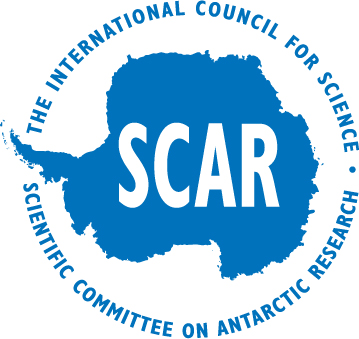
The official outcomes of the 1st SCAR Antarctic and Southern Ocean Science Horizon Scan were published online today as a COMMENT in Nature (512, 23–25; 2014) entitled "Six priorities for Antarctic science".scar logo 2013
In April 2014, the Scientific Committee on Antarctic Research (SCAR) convened 75 scientists and policy-makers from 22 countries to agree on the priorities for Antarctic research for the next two decades and beyond. This is the first time the international Antarctic community has formulated a collective vision through discussions, debate and voting. The Horizon Scan narrowed a list of hundreds of scientific questions to the 80 most pressing ones.
The questions fall broadly into six scientific priorities:
1) define the global reach of the Antarctic atmosphere and Southern Ocean;
2) understand how, where and why ice sheets lose mass;
3) reveal Antarctica's history;
4) learn how Antarctic life evolved and survived;
5) observe space and the Universe;
6) recognize and mitigate human influences.
A few examples of critical questions that need to be answered include:
a) How will the recovering ozone hole and rising greenhouse-gas concentrations affect regional and global atmospheric circulation and climate?
b) Will changes in the Southern Ocean result in feedbacks that accelerate or slow the pace of climate change?
c) What factors control Antarctic sea-ice seasonality, distribution and volume?
d) Are there thresholds in atmospheric CO2 concentrations beyond which ice sheets collapse and the seas rise dramatically?
e) What do geological signatures of past relative sea level tell us about when and where planetary ice has been gained or lost?
f) What are the genomic, molecular and cellular bases of adaptation in the Antarctic?
g) What is the nature of the Dark Universe?
h) What is the current and potential value of Antarctic ecosystem services and how can they be preserved?
The assembled experts concluded that to answer the 80 highest priority questions, it will be necessary to provide long-term sustained and stable research funding; access to all of Antarctica throughout the year; application of emerging technologies; strengthened protection of the region; growth in international cooperation; and improved communication among all interested parties. Maximizing scientific return while minimizing the human footprint should be the goal, and coordinated international efforts that engage diverse stakeholders will be crucial.
Former SCAR President Mahlon 'Chuck ' Kennicutt II, who lead the Horizon Scan, summarized that "Antarctic science is clearly globally important. The southern polar community must act together if it is to address some of the most pressing issues facing society.... It is time for nations involved in southern polar research to embrace a renewed spirit of cooperation as espoused by the founders of the Antarctic Treaty - in actions not just words." While this is the first Antarctic Horizon Scan, it is recommended that SCAR repeat the Horizon Scan exercise every four to six years in support of national strategic planning efforts and emerging integrated science, conservation and policy efforts.
Communicating the global importance of Antarctica to the public must be a priority. Narratives need to better explain how the region affects and is influenced by people's daily lives. Antarctic success stories, such as signs of ozone recovery, engender confidence in the power of changes in behavior. SCAR President, Jerónimo Lopez-Martin concluded, "Antarctic science has never been more important to our understanding of how the Antarctic and Earth system work, what this foretells about the future of our planet and the role that humans play in observed change. The challenge is to find new ways for the global Antarctic community to act together to realize this potential for the benefit of all."


